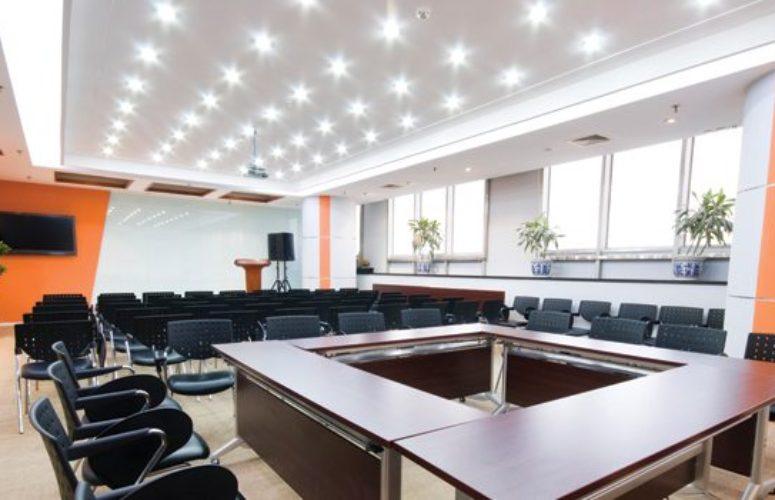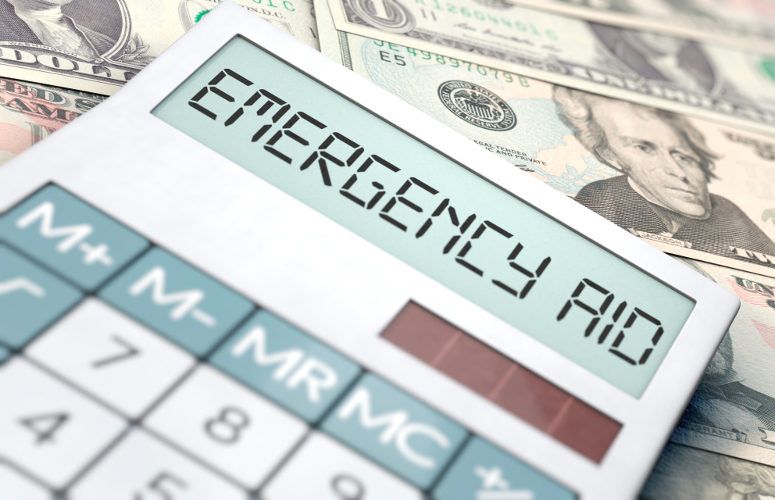
Energy Savings for Small Businesses
What options do small businesses have to help save on energy costs?
By Anthony Bucci, Assistant Editor On Feb 9, 2015While the economy in New Jersey has been slowly and steadily improving, energy costs in the state are still among the highest in the nation. However, for small business owners in the state, possible energy cost savings can be just around the corner due to various laws, energy regulations and energy efficiency programs offered by the New Jersey Board of Public Utilities (BPU) and state utility and energy companies.
For small businesses, energy costs are among their top business expenses. And, in today’s competitive marketplace, energy efficiency and saving money on energy costs is a key element in maintaining a heathy bottom line. In this article, New Jersey Business explores options and actions that small businesses can take to not only reduce energy costs, but to become more energy efficient, as well.
For years, residents and business owners in New Jersey had no choice as to what company provided them with energy, even if they were unhappy with the cost and service. The local utility company provided both the supply and delivery of energy. But due to the Electric Discount and Energy Competition Act – which the New Jersey BPU approved in 1999 – choice has been given to the consumer as to who provides them energy and at what cost. And although energy deregulation has been enacted in the state for more than 15 years, many consumers – residential and small businesses in particular – are either not aware or are confused with how it works.
Under deregulation, third-party energy companies generate and supply energy. However, local utilities still distribute and deliver that supply through their own pipes and wires and provide the energy bill to consumers. There are multiple parts to an energy bill, but the only portion of the bill that is affected when choosing a third-party supplier is the basic generation service charge, i.e., the price of electricity. Additionally, energy prices through third-party suppliers are based on current market rates, whereas utility prices, which are fixed rates, are determined at an annual Basic Generation Service auction. Third-party suppliers can and do offer certain fixed rates, however, depending on contract terms.
“With deregulation, there are many ways for small businesses to save money, and it basically comes down to choice,” says Geoffrey Rochwarger, chairman and CEO of Newark-based IDT Energy. “And with choice, comes the offering of variable rate programs and fixed rate programs. IDT Energy offers both programs. However, there are no sign-up fees, no early termination fees and no long-term contracts. If a customer isn’t happy with their service or their cost for energy, they always have the option to go elsewhere without increasing penalties.”
Small businesses need to evaluate options and programs available and consider the following questions: How often does the utility’s supply rate change? If a business switches, what kind of contract is it getting into? Does the contract come with termination fees? Can a business switch between plans and programs? Are there any other incentives? What plan is better for a small business; a fixed or variable rate program?
“Answers to those questions depend on certain factors and what business owners want,” Rochwarger says. “Some consumers seek the budget certainty of fixed energy rates. Others prefer to follow the market rates, taking advantage of market moves, promotions, rebates and other incentives. So, small businesses should certainly do their homework as to what it is getting when making energy choices.”
Another way for small businesses to save money on their energy usage is to upgrade or retrofit facilities to become more energy efficient. There are various incentives through the BPU’s New Jersey Clean Energy Program (NJCEP) that “many small businesses are not aware of,” says Ari Venezia-Zahemski, president and CFO of Madison-based Vanguard Energy Services.
“NJCEP programs are backed by a small societal benefits fee that most residential and commercial consumers pay on their utility bills,” she says. “Those fees are then leveraged into various clean energy programs and rebates in which the BPU hopes businesses take advantage of so they can start to cut energy consumption and therefore energy cost. The NJCEP is basically giving money back to us in the form of incentives.”
Vanguard Energy Services specializes in providing LED lighting to New Jersey businesses. This can “save them 50 to 70 percent on lighting costs at little or no expense,” Venezia-Zahemski says. The company is involved with the NJCEP’s New Jersey SmartStart Buildings program under its prescriptive lighting category. The state provides financial incentives to businesses depending on the type of lighting and fixtures to which they upgrade.
“Small businesses don’t realize that something as simple as LED light technology can help reduce their costs drastically and immediately,” Venezia-Zahemski says. “High quality LEDs can last 70,000 hours and use up to 90 percent less power than traditional bulbs. So, coupled with NJCEP incentives and LED technology, small business can save a lot of money.”
The NJCEP also offers a program called Direct Install, for businesses whose peak demands do not exceed 200 KW for the 12 months prior to applying. Direct Install is designed to cut small- to medium-sized business’ energy costs by replacing lighting, heating and cooling equipment with energy efficient alternatives. The program pays up to 70 percent of the retrofit costs, with a $125,000 cap on each project.
New Jersey Natural Gas (NJNG) offers a program that “compliments Direct Install by paying the additional 30 percent of the project cost with no interest over 24 months,” according to Jerry Ryan, energy efficiency operations manager at NJNG. “We created our program because, even with Direct Install incentives, a small business may not have the capital to cover the remaining 30 percent of the upfront project costs.”
Constellation Energy offers a similar program called Efficiency Made Easy (EME), which can also take advantage of NJCEP incentives. With EME, Constellation includes the cost of energy efficient upgrades through in-electric rate funding with no capital expenditure to a business.
“We include the cost on a client’s power bill as a separate line item every month,” says John Dempsey, business development manager, energy efficiency, for Constellation. “For example, if a project is going to cost a business $36,000 and it has a 36 month energy supply agreement with us, every month it would see a $1,000 line on its invoice over 36 months to cover the cost.”
Dempsey says finding out what a business’s goals are when looking to become more energy efficient is important in deciding what work should, and could be done.
“Does a business have equipment that has been giving it problems?” he says. “Or, does it want to find what work will provide the quickest and best savings return? … We have an auditor go in and assess the site and outline the opportunities that are available, and the costs and savings associated with doing the work.”
Another option for small businesses looking to save on energy costs is solar power.
PSE&G offers a solar program called Solar Loan III, which, “can help make solar ownership fairly affordable for PSE&G customers,” says Ted Repetti, solar loan program manager for PSE&G. “The Solar Loan III program helps businesses finance a portion of a solar system by “providing a unique repayment option.
“There are two things that a solar system generates,” Repetti continues. “It generates electricity that a business can use for energy savings. It also generates Solar Renewable Energy Certificates (SRECs). SRECs have a value that is determined by supply and demand in the marketplace. PSE&G will guarantee a price on the SRECs generated by a customer’s solar system and will use that to repay the loan over 10 years.”
“Ownership of a solar system can see energy savings up to 30 percent, but obviously, those savings vary based on the month of the year, how much production comes from a business’s solar system, how much energy a business consumes, the size of a facility, the cost a business is paying for electricity or gas and how effectively a site can be utilized for a renewable energy system,” ads Ed Seliga, vice president and COO of Flemington-based solar designer and installer, Advanced Solar Products. “Payback on solar system purchases can be seen in the 7-to-10-year range with systems lasting 25 to 30 years. So, solar could, and should, be looked at by businesses as a viable clean energy and cost savings option.”
Small businesses in New Jersey have nothing to lose by participating in energy savings and energy efficiency programs, concludes NJNG’s Ryan. “It may seem daunting at first, but small businesses in the state should reach out to the BPU and/or energy companies and utilities for assistance and information on the various programs and options available when looking to save money on energy.
Related Articles:






